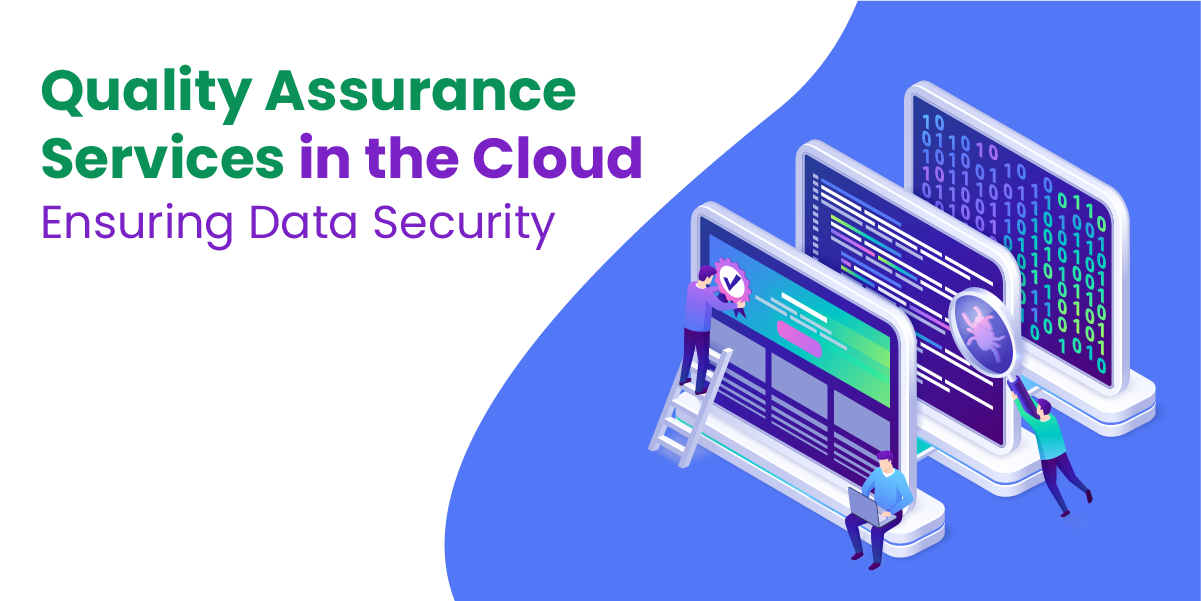Search This Blog
Niraj Jagwani is an engineer who has co-founded a number of businesses in the domain of software development services. He has successfully helped clients across industries increase revenues, optimize processes, and achieve new milestones. He is a passionate writer and loves to exchange ideas.
Featured Blogs
- Get link
- X
- Other Apps
Quality Assurance Services in the Cloud: Ensuring Data Security
Understanding the Essence of Quality Assurance Services
Quality Assurance Services, often synonymous with service quality assurance or quality assurance testing services, play a pivotal role in ensuring that cloud-based systems function seamlessly while maintaining the highest standards of security. These services encompass a comprehensive set of processes, methodologies, and tools designed to validate and enhance the quality of software and systems.
The Three Pillars of Service Quality Assurance
Functional Testing:
At the heart of quality assurance lies functional testing, a process that evaluates the system's functionalities to ensure they align with the predefined specifications. In the realm of cloud computing, this involves scrutinizing the various services and applications hosted in the cloud to guarantee they operate as intended. By conducting thorough functional testing, organizations can identify and rectify potential vulnerabilities that could compromise data security.
Performance Testing:
Cloud environments are dynamic and subject to fluctuating workloads. Quality assurance services include performance testing to assess how well the cloud infrastructure handles varying levels of demand. This ensures that even during peak usage, the system maintains optimal performance without compromising on security. Performance testing is crucial for identifying bottlenecks, optimizing resource allocation, and fortifying the overall resilience of the cloud infrastructure.
Security Testing:
Perhaps the most critical aspect of quality assurance services in the cloud is security testing. This involves a meticulous examination of the cloud architecture, identifying potential vulnerabilities, and implementing measures to mitigate security risks. Security testing encompasses various facets, including data encryption, access controls, and vulnerability assessments. By proactively addressing security concerns, organizations can build a robust defense against cyber threats and unauthorized access to sensitive information.
Key Strategies for Ensuring Data Security in the Cloud
Encryption Protocols:
Quality assurance services focus on validating the effectiveness of encryption protocols employed in the cloud. This involves encrypting data both in transit and at rest, safeguarding it from interception and unauthorized access. Through rigorous testing, organizations can ensure that their chosen encryption methods adhere to industry standards and provide a secure foundation for data storage and transmission.
Access Control Mechanisms:
Controlling access to sensitive data is paramount in the cloud. Quality assurance services evaluate the effectiveness of access control mechanisms, ensuring that only authorized personnel can access specific information. Role-based access control (RBAC) and multi-factor authentication (MFA) are scrutinized to guarantee their efficacy in thwarting unauthorized access attempts.
Regular Audits and Compliance Checks:
Quality assurance services extend beyond the initial implementation phase. Regular audits and compliance checks are conducted to assess the ongoing adherence to security standards and industry regulations. This proactive approach ensures that any potential lapses in data security are identified and addressed promptly, minimizing the risk of data breaches.
The Evolving Landscape of Quality Assurance in the Cloud
As the cloud computing landscape continues to evolve, so too must quality assurance services. Continuous testing methodologies, automation, and artificial intelligence are becoming integral components of quality assurance strategies. By harnessing these advancements, organizations can not only enhance the efficiency of their quality assurance processes but also stay ahead of emerging threats in the dynamic realm of cloud security.
In conclusion, the adoption of quality assurance services in the cloud is not merely a best practice—it is a necessity. As businesses entrust their valuable data to cloud environments, the assurance of service quality and data security becomes non-negotiable. Through meticulous testing and validation, quality assurance services pave the way for a secure and resilient cloud infrastructure, enabling organizations to harness the full potential of cloud computing while safeguarding their most valuable asset—data.
Popular Posts
- Get link
- X
- Other Apps
Cloud Engineering: Navigating the Future of Digital Transformation
- Get link
- X
- Other Apps



Comments
Post a Comment